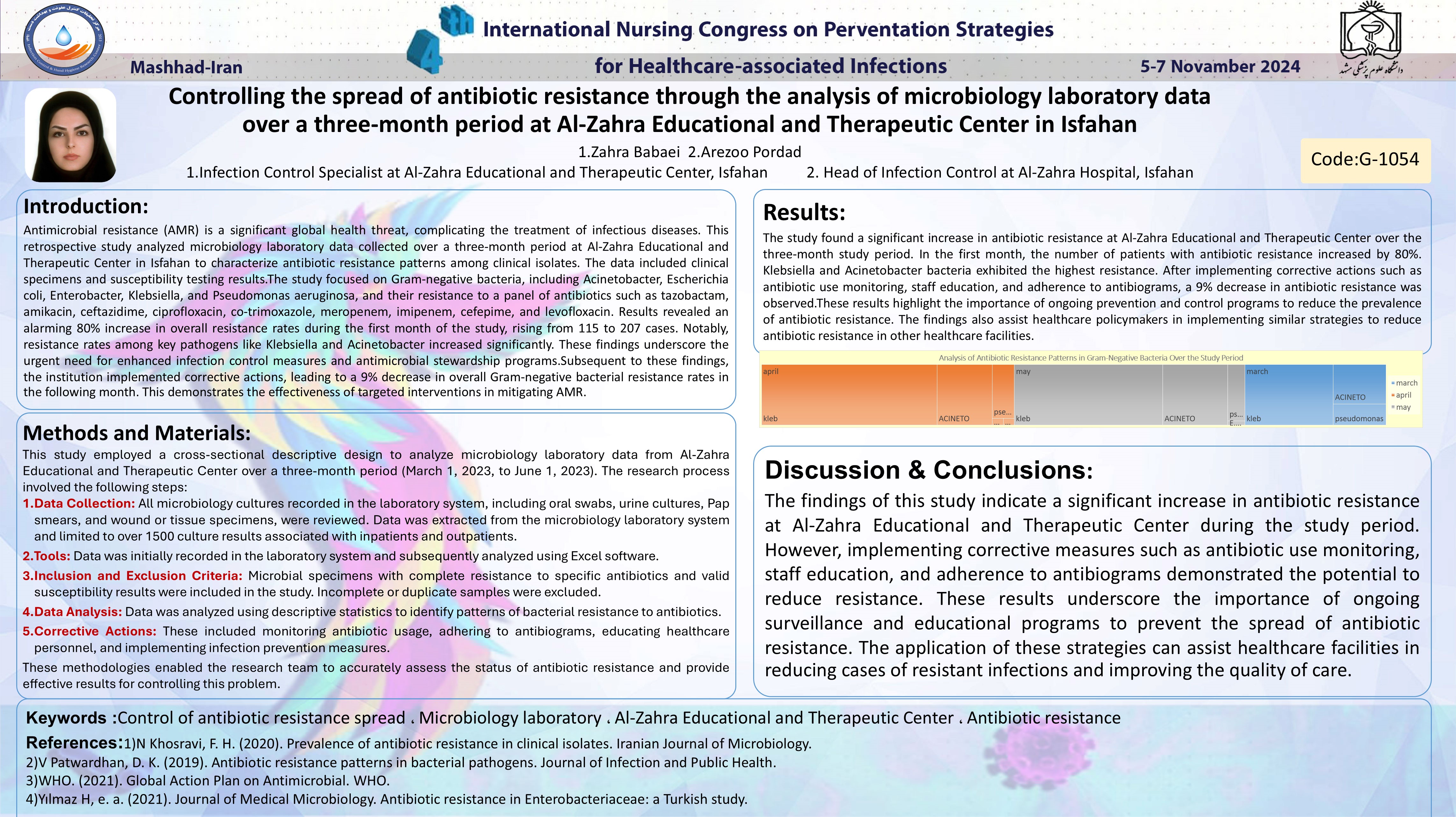کنترل شیوع مقاومت آنتی بیوتیکی از طریق تحلیل داده های آزمایشگاه میکروب شناسی طی سه ماه در مرکز آموزشی درمانی الزهرا اصفهان
کد: G-1054
نویسندگان: زهرا بابائی © ℗, آرزو پورداد
زمان بندی: زمان بندی نشده!
دانلود: دانلود پوستر
خلاصه مقاله:
خلاصه مقاله
Antimicrobial resistance (AMR) is a significant global health threat, complicating the treatment of infectious diseases. This retrospective study analyzed microbiology laboratory data collected over a three-month period at Al-Zahra Educational and Therapeutic Center in Isfahan to characterize antibiotic resistance patterns among clinical isolates. The data included clinical specimens and susceptibility testing results.The study focused on Gram-negative bacteria, including Acinetobacter, Escherichia coli, Enterobacter, Klebsiella, and Pseudomonas aeruginosa, and their resistance to a panel of antibiotics such as tazobactam, amikacin, ceftazidime, ciprofloxacin, co-trimoxazole, meropenem, imipenem, cefepime, and levofloxacin. Results revealed an alarming 80% increase in overall resistance rates during the first month of the study, rising from 115 to 207 cases. Notably, resistance rates among key pathogens like Klebsiella and Acinetobacter increased significantly. These findings underscore the urgent need for enhanced infection control measures and antimicrobial stewardship programs.Subsequent to these findings, the institution implemented corrective actions, leading to a 9% decrease in overall Gram-negative bacterial resistance rates in the following month. This demonstrates the effectiveness of targeted interventions in mitigating AMR.
کلمات کلیدی
Control of antibiotic resistance spread ، Microbiology laboratory ، Al-Zahra Educational and Therapeutic Center ، Antibiotic resistance
